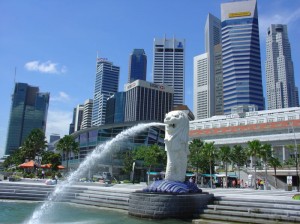
The Changing Platform of Singapore’s Mother Tongue
Posted by Editor on Oct 9th, 2013 in Favourite Updates | 0 commentsThe century-old academic system of Singapore has dramatically changed throughout the years. Huge number of students speaking English at home is undeniable as it grows faster. There is an estimated 60% Singaporean students were from ‘English-speaking’ families some of whom migrated from nearby cities in Asia and other foreign nations though.

The Rise of English at Home
According to Education Minister Sim Ann, English speaking families defeated Mother Tongue languages’ objective in the entire education system and it was mainly jeopardize by this phenomenon. In the past few years, there is a current “varying levels of proficiencies” in the Mother Tongues as before, the Education Minister explicated at the East Asia Summit Conference on Bilingualism. Meanwhile, Goh Yeng Seng of the National Institute of Education’s (NIE) and Head of Asian Languages & Cultures Academic Group (ALC) recommended utilizing “bilingual textbooks” as medium of supplementary teaching same through with the Mother Tongue lessons.
Bilingualism at Schools
In most occasions according to Seng, bilingual language can be used to explain new vocabulary and to encourage students to ask questions. Ascertain Professor Goh encourages Singaporean schools to use English language as “their first language” as most students were used to communicate in English and to master languages that sets students comfortable in their communication process.
English Improves Performance
In an early stage of students, using bilingual language that includes English shows their active participation in class discussion, Goh added. In fact, the bilingual usage is adapted by only few schools; this will open a great challenge for the academe to train highly-skilled teachers on bilingual principles. Bilingualism among students can be a challenging, interesting, and yet controversial matter in transforming traditional trend of Singapore’s education system, Sim explained.
Mixed Language, Mixed Culture
Minister Sim also noted that the practice of bilingualism is brought by cultural and social factors, and hence, a huge challenge for the academe per se. The entire education system is ready to abreast any changing platform of Singapore’s oldest method of Mother Tongue Languages Proficiency. In this respect, academic and language experts believe in its objective to preserve its regional language today.
